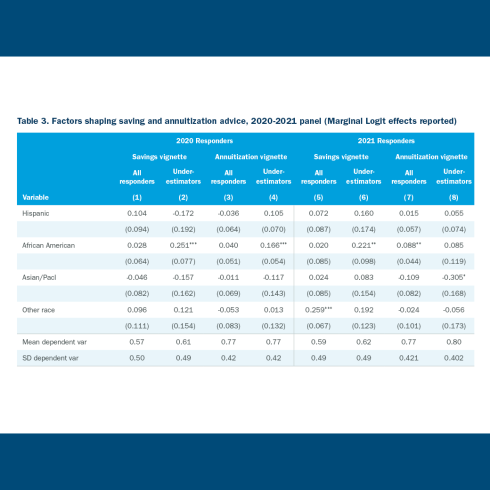Prior research suggests Covid-19 mortality has, in the U.S., disproportionately harmed those with low income, African Americans, and Hispanics. Have these groups’ subjective survival perceptions changed in a manner consistent with observed outcomes?
Summary
Inaccurate perceptions of life expectancy can lead to suboptimal financial decisions with long-term consequences, including undersaving before retirement and overspending during retirement. This study examines whether non-whites’ perceptions of longevity at the outbreak of the pandemic were consistent with observed reality, how these perceptions compared to those of white adults, and whether and how people’s perceptions changed a year into the pandemic.
Key Insights
- The gap between subjective survival probabilities and life tables was significantly higher among African Americans and Asian/Pacific Islanders compared to whites.
- A year into the pandemic, changes in subjective survival probabilities did not differ much by race/ethnicity.
- Seeing a vignette reduced subjective survival overestimation among Hispanics, African Americans, and those self-identifying as an “other” race.
- African Americans who underestimated their survival chances were most likely to recommend saving more and annuitizing in 2020; in 2021 the effects remained positive but less statistically significant.




